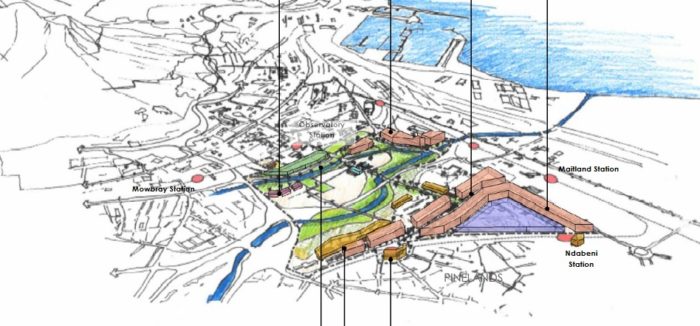Many locals living in the Observatory area, as well as the Observatory Civic Association, are objecting to a development in their area which aims to build an urban park and a River Club that will include retail, commercial and residential space.
A study by the City has suggested a linear park be built on the site to cater to two large ecological corridors that cut through the area and need to be protected during the development.
“The site includes an industrial area, a small village, an institution for people with intellectual disabilities and a golf course,” reads the City’s Spatial Development Framework Document.

The City’s vision is that the park will actively intensify the residential, economic, recreational and institutional urban activities by developing limited vacant land and connecting the precincts at the confluence of two rivers and two urban corridors.
According to the City, this will provide more residential units, create more job opportunities, celebrate the complex layers of memory and cultural heritage while supporting healing and environmental resilience.

Observatory Civic Association is accusing the City of not honouring previous agreements as well as not giving residents enough time to respond to the development plans.
In a recent newsletter, the Association mentions how the Liesbeek Leisure Properties Trust (LLPT) had applied for a mega-development on the River Club site and how they have made concerted effort to downplay the opposition to the development in the media. According to the Association, only the minority of opinions have been portrayed instead of the majority of the Observatory community.
“So, I am appealing to you to make the effort to lodge a submission and show that the Obs Community can speak for itself and does not need the developers to speak for it,” said Leslie London from Observatory Civic Association in the newsletter.
One of the main objections to the development is the affect it could have in the 100-year-old floodplain and the indigenous flora and fauna that live there.
The land is the site of a 100-year-old floodplain where three rivers converge, and apart from accommodating seasonal migrating birds and indigenous flora and fauna, it is also the cremation ground of the early Quena, or Otentottu people.
Calls have also been made to declare the area a Heritage Site.
A meeting will be held on November 20 for locals to give feedback.
Those wanting to participate in the process can visiting www.capetown.gov.za/haveyoursay or via email to [email protected], at sub-council offices, and at the libraries in Pinelands, Ndabeni and Observatory.
Submissions closing date is December 17, 2019.
Read the full Framework document here.
Pictures: The City of Cape Town

